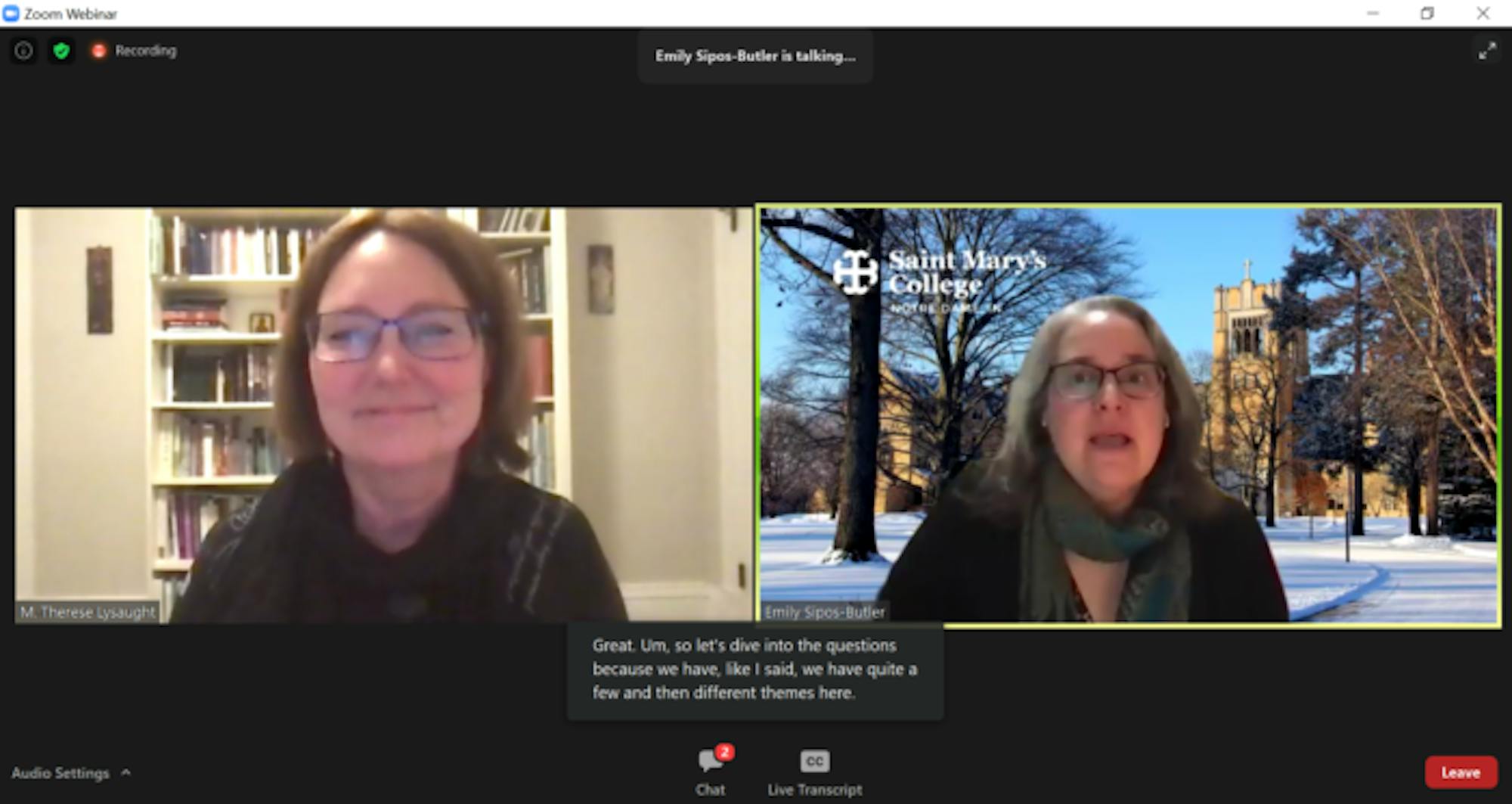The Center for Spirituality at Saint Mary’s hosted the first of three lectures in their Spring Endowed Lecture Series: Spirituality, Ethics and Healthcare over Zoom on Wednesday night. The featured speaker at the lecture was Dr. M. Therese Lysaught who is a Professor of Bioethics and Health Care Mission Leadership at Loyola University of Chicago. 
Lysaught’s lecture was titled Rethinking our Priorities: Catholic Bioethics After COVID-19. Lysaught began the lecture with a reference to her book "Catholic Bioethics & Social Justice". She explained that one of the key arguments in her book was that, “Catholic bioethics needs to be reoriented and revivified using the lens of Catholic social thought.”
Lysaught said that the pandemic unveiled inequalities in our healthcare systems that were previously invisible to many such as economic, and racial, inequalities locally and globally. Lysaught said she was hopeful that the world would learn from the experiences of 2020 and the cries for racial equality would allow “a different set of priorities [to] shape vaccine distribution.”
“The COVID-19 pandemic ripped from our eyes the veil that hid from most of us the deeply social dimensions of contemporary medicine [and] shouted for the need to rethink our priorities both of bioethics and of medicine so that we can name, address and resolve the acute moral fractures that plague healthcare in the U.S. and globally,” Lysaught said.
Lysaught gave examples of research that showed minorities were dying at disproportionately high rates. However, she noted that “the researchers did not find any racial or ethnic differences in mortality rates among people who were hospitalized with the disease.” Instead, they found that embers of the black and Hispanic communities were more likely to suffer from underlying health conditions and work minimum wage jobs that put them at risk.
“The scope of the critical questions raised by the pandemic greatly transcended decisions in the hospital and the ICU and that the principles of bioethics were not sufficient to even begin to address these critical issues,” she said. “What was happening in the ICU was a direct result of broader long-standing social and economic realities.”
Lysaught dedicated the last half of her lecture to the Catholic bioethicists’ response to the COVID-19 vaccines. For Lysaught, due to the underlying social inequalities embedded in our social structure, the question of how to distribute vaccines goes beyond the hospitals and corporations.
Regarding Catholic social tradition, Catholic bioethicists need to "move the table" to go to marginalized societies and focus on the moral and ethical questions found there, Lysaught said.
Lysaught noted that many Catholic commentators and conversations have been focusing on the connection between the vaccine and abortion but Lysaught sees this as a solved issue and expressed that Catholic commentators should be focusing instead on viewing the situation “from the peripheral” a phrase she described as viewing from the eyes of the people who are pushed to the edges of society.
“Where is the conversation about Catholic complicity with racism,” Lysaught asked.
She noted that medical treatments for illnesses like polio and cancer among others have used tissue from black citizens. Lysaught pointed out that his example is parallel to the abortion issue but Catholic bioethicists do not talk about it because they are not looking to the side.
Lysaught ended by pointing out that more vaccines were distributed to countries that paid more. She provided examples of the rich getting richer and the poor continuing to get sick in order to illustrate the inequality of the process.
“If Catholic Bioethics is pro-life we must consider that this vaccine apartheid is not only unjust, it is deadly,” Lysaught said.
“I’m hopeful that his pandemic will have shaken up public health and hospital systems,” she said. ”I think that in Catholic healthcare there is an understanding now of what they need to do to change it but it is going to take a while to implement it. There’s a lot of social inertia and structures that we are meant to obstruct that we have to take apart and get through before we are really going to start to see changes.”
Loyola University professor speaks on Catholic bioethics amid pandemic
The Center for Spirituality hosted a lecture Wednesday evening which discussed Catholicism, health care and the pandemic.
The Center for Spirituality hosted a lecture Wednesday evening which discussed Catholicism, health care and the pandemic.









